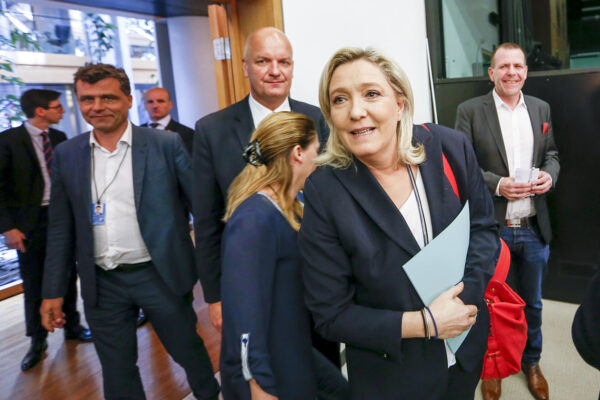
France’s National Front will have to reinvent itself after a disappointing election result on Sunday.
The nationalists were hoping to get 40 percent support or more in the presidential runoff, but Marine Le Pen got stuck at 34 percent. Still double her father’s performance when he qualified for the second voting round in 2002, but a letdown nonetheless.
In her concession speech, Le Pen promised voters “profound reform” of her party in order to create “a new political force” for all French “patriots” who oppose the globalism of Emmanuel Macron, the incoming president.
Whether this means starting a new party or rebranding the National Front remains to be seen, but change is in the air. With it could come a struggle for the movement’s identity.
Conservatives
An analysis of the presidential vote by the Financial Times reveals that Le Pen got most of her additional support in the second round from François Fillon’s voters: social conservatives, living in small towns and the French countryside.
Only 10 percent of those who backed the far-left Jean-Luc Mélenchon in the first round switched to Le Pen, despite the two sharing illiberal economic policies and a soft spot for Russia.
“The Republican front collapsed on the right, not on the left,” writes Art Goldhammer, an expert in French politics.
He expects the Republicans will mimic Britain’s Conservatives, who have made their far-right competitor, the United Kingdom Independence Party, redundant by wrapping themselves in the Union Jack.
The most obvious strategy for the National Front would be to vie for the same kind of voters with a more mainstream conservative platform.
EU membership
Politico reports that the Front’s conservatives are frustrated they didn’t win over more first-round voters from Fillon. A senior aide told the website they had failed to “work hard enough” during the campaign and adapt their strategy in the final two weeks.
One of the most difficult issues in winning over center-right voters is the Front’s support for leaving the European Union. Le Pen fudged her views on this, promising a referendum instead of outright “Frexit” if she were elected, but pro-EU voters still don’t trust her.
To become more competitive, the nationalists would have to give up their obsession with sovereignty and learn to live with the EU. For many, that might be too much to ask.
Social issues
Another issue that galvanizes social conservatives is gay marriage, legalized in 2013. Le Pen has deemphasized the Front’s social conservatism in favor of economic protectionism, but evolving “family values” still matter to many on the right.
The Front has two wings: one in the deindustrialized north, where Marine Le Pen’s anti-globalism resonates with blue-collar voters, and another in the south, coalesced around her niece, Marion Maréchal-Le Pen, that is more middle class and more traditional in its values. It is closer to the original vision of the Le Pen patriarch and Vichy apologist, Jean-Marie.
Marine deliberately put distance between herself and her father in order to make the Front more electable. Now it looks like the way he paved might lead to electoral success after all.
